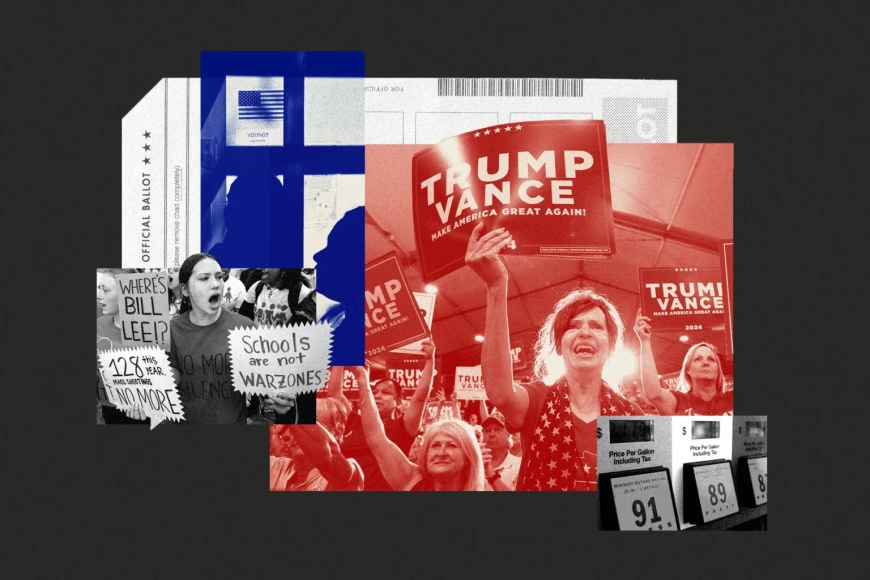The Democratic National Committee's Missed Opportunity: An Analysis of the Challenges Faced by the Democrats Following Their Defeat in 2024
During a recent meeting of the Democratic National Committee (DNC), outgoing chair Jaime Harrison endeavored to elucidate the party's gender-balance regulations pertaining to the vice-chair election. This effort ultimately underscored the party's persistent challenges with self-awareness following its defeat in the 2024 elections. The regulations pertaining to gender-nonbinary candidates were elucidated with considerable intricacy; however, as Harrison continued to elaborate, the process appeared increasingly convoluted, highlighting an excessive emphasis on legalistic nuances rather than a unified political strategy.

During a recent meeting of the Democratic National Committee (DNC), outgoing chair Jaime Harrison endeavored to elucidate the party's gender-balance regulations pertaining to the vice-chair election. This effort ultimately underscored the party's persistent challenges with self-awareness following its defeat in the 2024 elections. The regulations pertaining to gender-nonbinary candidates were elucidated with considerable intricacy; however, as Harrison continued to elaborate, the process appeared increasingly convoluted, highlighting an excessive emphasis on legalistic nuances rather than a unified political strategy.
The meeting, characterized by interruptions from irate demonstrators, served as a microcosm of the overarching challenges confronting the Democratic Party. Notwithstanding the Democratic National Committee's initiatives aimed at promoting gender and racial inclusivity, the party's formal proceedings did not exhibit any substantial recognition of the underlying issues that contributed to its electoral defeat. Despite the emphasis placed on regulations and representation, there was a notable lack of self-reflection regarding the party's messaging and its inability to connect with voters in critical battleground states.
The primary concern pertains to the declining influence of the Democratic National Committee (DNC) itself. The organization, at its most favorable assessment, functions primarily as a ceremonial entity with minimal impact on the party's trajectory. A significant portion of the Democratic Party's agenda and messaging has been appropriated by progressive activist organizations, which, despite their limited public endorsement, have acquired disproportionate influence through their financial resources and media initiatives. These organizations delineate critical issues—such as climate change, racial justice, and abortion rights—and exert pressure on candidates to align themselves with these causes, frequently to the detriment of more pragmatic, centrist considerations.
The 2020 Democratic primary serves as a salient illustration of this phenomenon, as candidates endeavored to align their positions with the preferences of activist organizations, endorsing contentious policies such as the decriminalization of border crossings and the provision of reparations. This ideological purity assessment has estranged a wider electorate, with surveys consistently indicating that numerous voters prioritize issues such as the economy, healthcare, and crime. They perceive the Democratic Party as excessively preoccupied with progressive priorities that do not resonate with the concerns of the general populace.
Despite the significant defeat of Kamala Harris in the 2024 election, the Democratic National Committee continues to adhere to its existing course. There has been no substantial examination of the party's shortcomings during the tenure of President Joe Biden, nor has there been an assessment of Vice President Harris's challenges in mobilizing essential demographic constituencies. During the meeting, when inquired whether racism and misogyny played a role in Harris's defeat, each panelist expressed their concurrence by nodding. Nevertheless, this diagnosis provides no pragmatic solutions, resulting in the party remaining ensconced within its echo chamber, devoid of a definitive course of action.
The appointment of David Hogg, a 24-year-old activist and survivor of the Parkland massacre, to the role of vice-chair further highlights the prevailing disconnect. Hogg's ascent exemplifies the Democratic Party's ongoing commitment to youth-driven activism; however, his public image—molded by progressive initiatives such as defunding ICE and abolishing the police—overlooks the wider apprehensions of constituents who do not subscribe to such radical viewpoints. His emphasis on mobilizing the youth vote through contentious issues such as gun control and climate change neglects to recognize that younger voters, akin to their elder counterparts, prioritize economic stability and public safety over ideological integrity.
For numerous Democrats observing the proceedings of the Democratic National Committee, a sense of fatalism is increasingly prevalent. A demonstrator adorned in a Sunrise Movement T-shirt articulated the prevailing sentiment with striking clarity when she exclaimed, "I am terrified!"—and she was not isolated in her feelings. As the Democratic National Committee (DNC) persists in emphasizing identity politics and progressive principles, it jeopardizes its focus on the substantive issues that genuinely concern voters, potentially exacerbating the estrangement of the electorate it urgently seeks to re-engage.













































